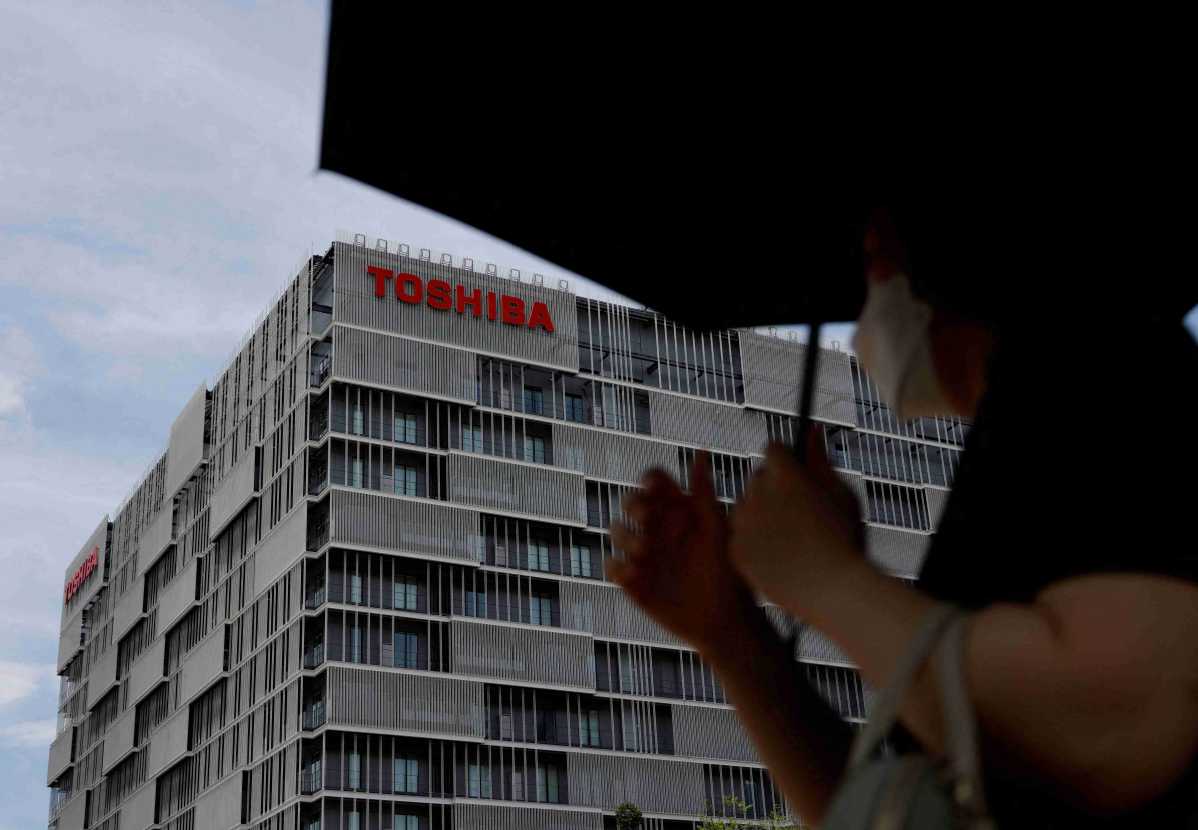Japan's chip restrictions will only hurt itself


Wide impact
The impact is already evident. Tokyo Electron, which derived about 26 percent of its total net sales from the Chinese mainland in 2022, is anticipating annual revenue to fall 23 percent from a year earlier to 1.7 trillion yen.
Tu Xinquan, dean of the China Institute for World Trade Organization Studies at the University of International Business and Economics in Beijing, said although the Japanese government denied that the move was at the behest of the US and did not specify if the restrictions only targeted China, it was obvious that "Japan has chosen the US in the China-US chip competition, which is undoubtedly wrongheaded."
He said export restrictions — often citing national security concerns — are essentially a trade measure subject to the constraints of, and governed by, World Trade Organization rules, and these should never be an instrument of competition.
There is only one area — arms sales — where export controls are commonplace, and their exports are strictly controlled and only allowed between countries with high levels of mutual trust, Tu said.
"The chip manufacturing equipment that Japan exports to China now is not in any way related to national security," Tu said. "This is a purely commercial activity as part of global production and trade."
The close economic and trade ties between China and Japan indicate that there is no state of emergency in terms of international relations, and there is no reason why Japan should invoke national security exceptions to execute its export control measures, Tu added.
In fact, nervous about its declining heft in world affairs, the US has in recent years expanded export controls on high-tech products to China and regarded it as the most critical tool to maintain hegemony.
The US has not only intensified its own export controls on China, but also coerced its allies to do the same. These US-dominated export controls have gone beyond the military to include most of its leading technologies, Tu said.
China last year brought the case to the dispute settlement mechanism of the WTO regarding the export control measures imposed by the US on chips exported to the country, Tu added.
Wei Shaojun, a professor at the school of integrated circuits at Tsinghua University, said Japan is a semiconductor powerhouse that plays an important role in the global market.
Since the 1980s, its semiconductor industry has been suppressed by the US and it has gradually shrunk since then, Wei said.
Meanwhile, China's semiconductor industry is on the rise, with over $10 billion spent on purchasing Japanese equipment and materials annually, Wei added.
"This is not an easy number to ignore for anyone. In the past year, sales of US semiconductor equipment companies in the Chinese market have been constrained by the US government and have suffered heavy losses," he said.
If Japan restricts its exports of advanced semiconductor equipment to China, its companies are bound to suffer greatly, said Wei.
"The Japanese government must learn from the past seriously, and carefully and thoroughly consider the implications of any new export restrictions," Wei added.
China, the world's largest chip market, consumes more than 50 percent of all semiconductors in the world, which are then assembled into tech products to be re-exported or sold in the domestic market for final consumption, according to market research company Daxue Consulting.
"Access to this massive market is essential to the success of any globally competitive chip firm today and in the future," said the Semiconductor Industry Association, a Washington-based group that represents the US semiconductor industry.
Song Lei, a professor at the School of Government at Peking University, said Japan's latest move will accelerate the development of China's homegrown chip industry, as not all of the equipment restricted by Japan is beyond the production capabilities of Chinese companies.
China's output in this field may be relatively low or its product quality may be relatively poor, but the tightening of export controls may push Chinese companies to catch up with their Japanese counterparts, Song said.
"The long-term impact of Japan's export restrictions depends on both China's efforts and the possibility of policy adjustment. Over the long term, whether Japan will strictly enforce these restrictions remains to be seen," he said.
Japan is willing to endure losses in order to follow the US in restricting the export of cutting-edge chip manufacturing equipment. "This actually reflects a trend where political logic overrides economic logic," Song said.
Chen Xiang, an associate research fellow with the Institute of Japanese Studies at the Chinese Academy of Social Sciences, said Japan has abandoned its strategy of balanced diplomacy since the Cold War and aligned itself with the US.The implementation of semiconductor export restrictions will damage Sino-Japanese relations.
Experts have warned that Japan — as an Asian nation — must realize that serving as a chess piece in the US' global and regional playbook will result in grave consequences.




































